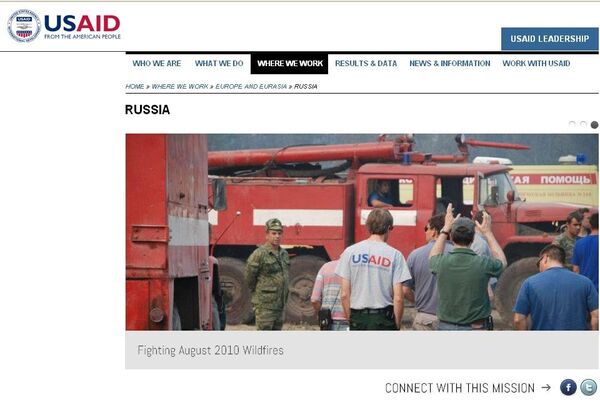The stopping of USAID’s operations in Russia does not mean an end to the much-heralded reset between Washington and Moscow, U.S. State Department spokeswoman Victoria Nuland said on Tuesday.
“This is always a sovereign nation's decision whether they want to have our assistance,” Nuland told reporters. “That said, as you know, when we talk about the reset, we talk primarily about global and regional foreign policy issues on which we work together.”
The U.S. State Department said earlier on Tuesday that the United States is ending its efforts to promote democracy and civil society in Russia under the auspices of the U.S. Agency for International Development in line with a relevant decision by the Russian government.
“In those categories, we've been very clear about what we see as the benefits of the reset: the New START Treaty, obviously; the work we're doing together in the P5 plus one on Iran; the work we've done on the DPRK; other - the work we've done to be able to support Afghan security forces, peace and stability in Afghanistan. Those things obviously continue,” Nuland said.
“But we've also always said that the reset would give us an opportunity not only to cooperate wherever we could, but also to be clear when we have concerns and when we disagree,” she said.
Nuland said the United States has always been concerned about the human rights situation in Russia, and added that it will keep reminding Russia of irregularities.
The State Department spokeswoman did not say why Russia refused to continue cooperating with USAID.
“Well, I'm going to leave it to the Russians to characterize their motivations behind this, but I would say it tends to trend towards the latter, their sense that they don't need this anymore,” she said.
Senior Russian officials have portrayed some of USAID programs - such as those funding election monitoring and human rights groups critical of the Kremlin - as attempts by a foreign nation to undermine Russia’s sovereignty.
Nuland said in a statement on Tuesday: “The United States recently received the Russian Government’s decision to end USAID activities in the Russian Federation.”
“We are extremely proud of what USAID has accomplished in Russia over the past two decades, and we will work with our partners and staff to responsibly end or transition USAID’s programs.”
USAID, which operates in more than 100 countries, has been active in Russia over the past two decades. Its array of social programs have targeted issues such as at-risk youth and pressing public health issues like tuberculosis and HIV/AIDS.
But the agency has also funded civic organizations that have rankled Russian officials, including the election watchdog Golos, whose monitors have catalogued violations in local and federal elections in recent years.
The United States has repeatedly denied that these programs are aimed at interfering in Russia’s domestic affairs.


